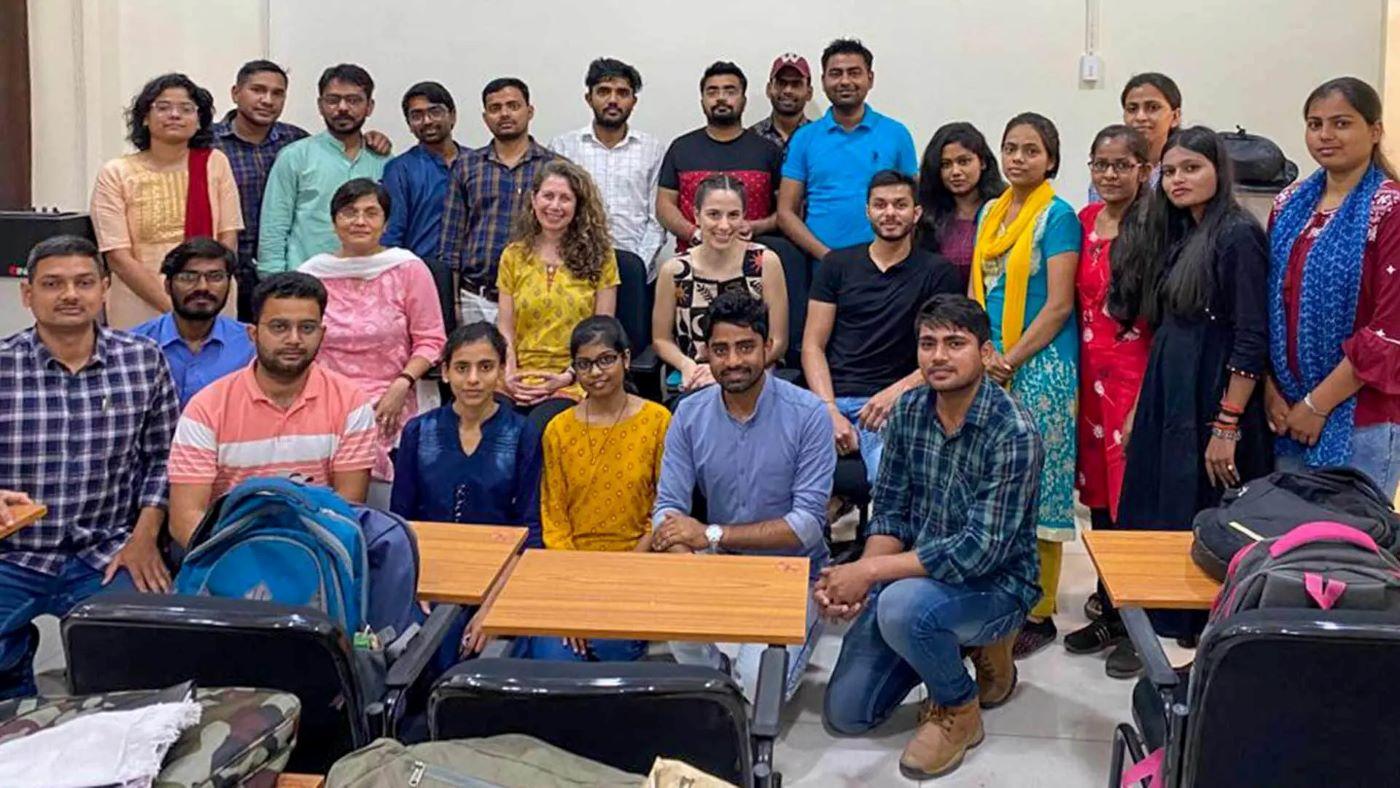
1. For those who may be unfamiliar with you and your work, can you share a little bit about yourself, your research interests at UMD, and the scope of your project?
As a Fulbright Scholar in Varanasi, India in 2006-2007, I taught Family Perspectives on Peace and Violence at Mahatma Gandhi Kashi Vidyapith (MGKVP) and while in Varanasi, became affiliated with the Malaviya Centre for Peace Research at Banaras Hindu University (BHU). During that year, I lectured on topics related to the study of families, child development, and community violence. I conducted interviews and focus groups to learn about family structure in India. The majority of my research during and after earning my doctorate in Family Science was in the areas of adolescents and families, community violence, and substance abuse. My role at University of Maryland is now focused largely on student engagement in global health.
2. What inspired you to start this process of becoming a Fulbright participant? What was your process in approaching the application?
When I was a doctoral student, I wanted to conduct a dissertation project in India. However, my advisor’s area of research was on urban communities in the U.S. Over time, I realized that I could conduct my research domestically, and travel after earning my degree. I remember someone sharing the wisdom, “A good dissertation is a done dissertation” as a reminder that the dissertation is not the ending. In the catalog (which was a big bound paper book at that time), I found a Fulbright teaching position in Varanasi, a city I loved when I was in India as a backpacking traveler. I requested and received a letter of invitation from Mahatma Gandhi Kashi Vidyapith, the host university. I believe that my experience teaching undergraduate courses as a Ph.D. student was integral to my acceptance.
3. In 2022, the university released their new strategic plan, Fearlessly Forward. One of its core tenets is to take on the world's grand challenges. In what ways does your work contribute to supporting the common good?
In my current role as the director of the Global Public Health Scholars program, I teach FMSC110: Families and Global Health that fulfills a GenEd requirement for Cultural Competency. My Fulbright experience and other international experiences provide a foundation for teaching students about cultural contexts and to be aware of ethnocentrism. I tell students stories of my observations in India that led me to think about how practices in the United States can be improved when we immerse ourselves elsewhere. I share work by my colleagues in India to show the similarities and highlight the progressive social and gender justice materials to elicit discussion from my students. Since 2006, when I traveled to Varanasi as a Fulbright, I have maintained connections with colleagues and developed new working relationships as each of our professional portfolios have expanded. I currently teach a Global Classroom course with my colleague Dr. Madhu Kushwaha from Banaras Hindu University, FMSC265: Menstrual Health Education: Dispelling Myths and Misconceptions. Achieving gender equality and empowering people who menstruate is a grand challenge that our course addresses. The School of Public Health and College of Education hosted Dr. Kushwaha as a Fulbright Scholar in 2019-20.
4. What was the most surprising thing you found in your research?
My family traveled with me to India during the Fulbright and we immersed ourselves in the community. We lived in an apartment within a family home. I was not on a research Fulbright, but I became interested in learning more about the joint family system in contrast to the nuclear family system. I conducted focus groups and interviews and was struck by the finding that strong family connections were not tied to household structure.
5. How do you plan to carry forward what you learned and the relationships you formed while abroad?
Over time, I have learned that the most important strategy for work across cultures to be successful is to be prepared, flexible, and not in a rush. There is value in building relationships, visiting project sites, meeting faculty and their students, and generating ideas. The Fulbright was a starting point that helped build relationships and confidence. To carry it forward, there has to be reciprocity such as we have done with forming a Memorandum of Understanding (MOU) between two universities. When reciprocal relationships are developed, there is a blossoming of opportunities for exchange. But it takes time.
6. For other Terps that are interested in becoming Fulbright grantees, what advice do you have for them?
Apply. Explore opportunities that match your interests and apply. For students, work with the Scholarships office which is fantastic at helping a student shape their essays and prepare for Fulbright interviews. In my experience, I think the Letter of Invitation is also really important. Therefore, it is good to establish a relationship with a mentor at a host university or institute or with the host university leadership while preparing your materials.
_____
Visit our Fulbright Scholars gallery to meet our fearless scholars engaging with the world. For general program information and application guidance, visit our "How to Fulbright at Maryland" section at the bottom of the page. Interested in applying for your own Fulbright, or want to learn more about the program? Email UMD’s Fulbright U.S. Scholars liaison Scholten@umd.edu.
